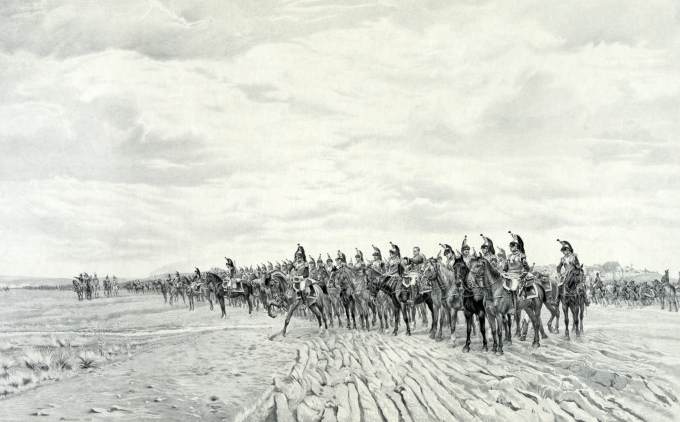By Steven Knorr
Joel Rayburn is a former Army Colonel and intelligence officer. In Iraq After America, he examines the challenges Iraq has faced since American troop withdrawals in 2011. In order to resolve Iraqi instability, three fundamental issues that have long plagued Iraq must be addressed. The principle issues, according to Rayburn, are political authoritarianism, sectarian violence, and ongoing insurgency. While the title implies the state of Iraq after the recent war (2003-2011), the author goes into detail about the historical origins of the conflicts within the country today. It is because of these deep-rooted divisions Iraq has failed to achieve stability.Rayburn is critical of US foreign policy, arguing that the American approach to war since Korea has been self-obstructive.[1] Too many conflicts, in his view, have been undertaken without a winning strategy. Moreover, political leaders have blindly hoped for things to “turn up” that would allow for troop withdrawal.[2] Quick victory, though possible, could come at a cost that would be morally reprehensible. This means wars drag on and public support of the war wanes. Rayburn believes that these longer wars are more destructive than a war that could be ended quickly. To Rayburn, Iraq was a job left unfinished which has lead to the instability of the region since 2011. With the rise of ISIS after US troop withdrawals, it is hard to dispute these points. However, the decisively resolved conflicts in Panama, Granada, and the Balkans might refute a broad application of Rayburn’s assessment of US foreign policy.
The book discusses in detail the legacy of political authoritarianism in Iraq. In particular, Nouri al-Maliki is discussed, the former prime minister who grew from a weak premier into a political strongman. The root of Maliki authoritative power goes back five decades during the struggle between Shia Islamists and Iraqi Baathists. The Shia Dawa party was crushed by Saddam’s regime but would reemerge when Ayad Allawi was appointed interim Prime Minster of Iraq in 2004. Rayburn argues that under Nouri al-Maliki, the Iraqi state reversed the work of coalition on establishing a decentralized democracy. After the 2010 elections Maliki was able to return to power despite losing the election, a clear indicator of a slide back to authoritarianism. In this and other respects, Maliki’s leadership was incredibly damaging to fragile Iraqi democracy, and Maliki and his Dawa faction were able to consolidate a considerable amount of power.
In the middle chapters, Rayburn argues that the violent sectarian divisions within Iraq are not natural and were hinted at prior to the conflict[3]. Much sectarianism was manufactured by outside factions with their own interests, including Shia Iran-allied exiles returning to Iraq. These Shia factions were determined to wreak havoc on former Baathist party members and Sunnis who persecuted the Iraqi Shia party from the 1970s through 90s. The religious rivalries within Iraqi society dominated post-invasion politics. In 2005, the citizens of Baghdad were displaced and separated into sectarian enclaves throughout the city. This lead to the religious cleansing of neighborhoods as Shia poured out of the slums of Baghdad into wealthier Sunni neighborhoods. The sectarian violence escalated into a full-blown civil war that took place from 2005-2008.
Because sectarianism has seeped into every aspect of Iraqi society, strongmen within Iraqi politics and the Shia resistance movement will continue to prevent Iraq from progressing into a functional, unified state. The situation could be compared to Yugoslavia, as a deeply divided country fractured by religious and political interests. While Iraq is divided up into Sunni, Shia and Kurdish enclaves, the best solution forward is a unified, singular Iraq. Violence would only escalate if sectarian enclaves were to break apart; this would also be catastrophic for regional stability. Rayburn acknowledges that keeping Iraq unified will be extremely difficult, because of internal divisions and outside interference. Little effort is placed on governing Sunni regions, and Iran continues to exert a destabilizing influence.
Sectarianism leads to insurgency, the ultimate plague of Iraq. Rayburn asserts that the Islamic State was not a surprise to the insiders or those who were paying attention[4]. Even if ISIS is defeated, with the continuation of sectarianism another spinoff insurgency will likely emerge. Here Rayburn is critical of the United States for its support of Maliki. The US supported Maliki because of his effectiveness against Al-Qaeda type terrorism. However, weapons given to the government made their way to Maliki’s political rivals and in turn into the hands of ISIS. Rayburn views the war on against ISIS as a part of a larger battle between Sunnis and Shias within Iraq[5]. Without the US guiding Iraq towards constructive policies that ease sectarianism, the current Iraqi regime will continue to be complacent regarding reconciliation with Sunni Iraqis.
Because of the broader battle between Shias, Sunnis, and even Kurds it is difficult to imagine conflict going away even after the defeat of ISIS. Rayburn makes very valid points regarding the Iraqi government and their unwillingness to address the divisions at hand. He convincingly demonstrates that the Iraqi government approach to governing will continue to damage Iraqi society.
Sources
[1] Rayburn, Joel. Iraq after America: Strongmen, Sectarians, Resistance (The Great Unraveling: the Remaking of the Middle East: Hoover Institution Press Publication; No. 643) . Hoover Institution Press. Kindle Edition.
[2] Ibid, location 113
[3] Ibid, Page 73
[4] Ibid, Page 121
[5] Ibid, Page 260
You can purchase Rayburn’s book on Amazon.



